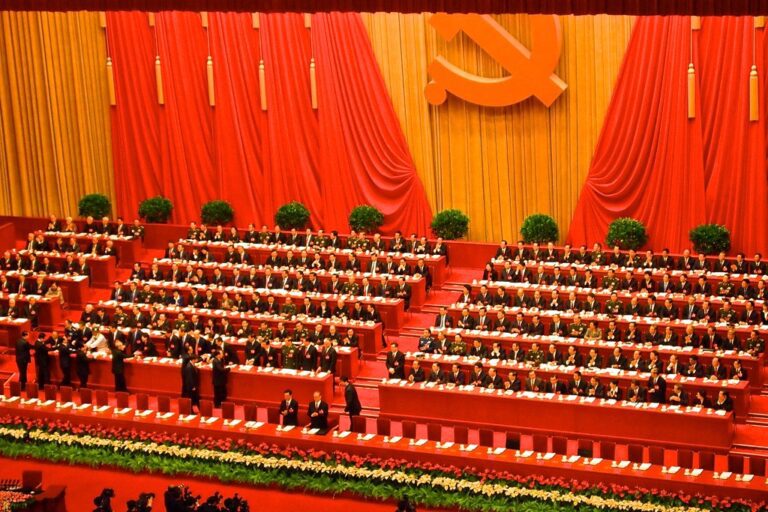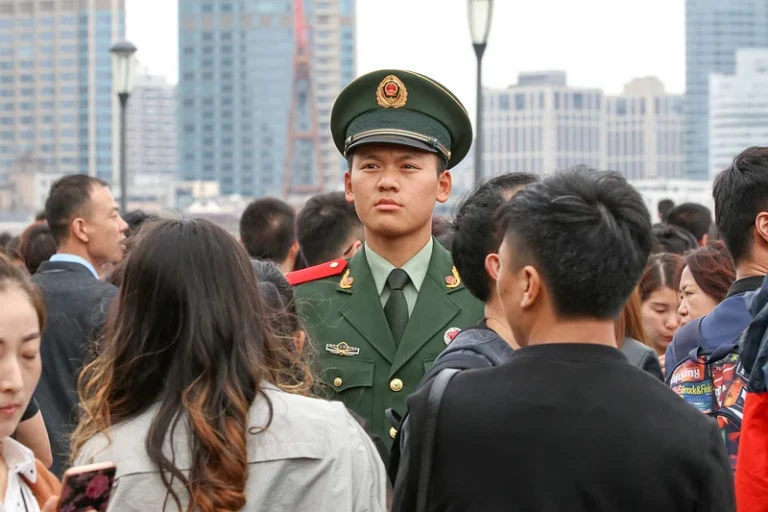How China Policy Challenges the German Greens

This article is part of a series of articles authored by young, aspiring China scholars under the Future CHOICE initiative.
Despite some recent turbulence, the Greens look set to shake up the German political status quo after the September elections, a policy outcome perhaps especially likely on foreign policy issues. Nowhere is the challenge to the current German alignment more prominent than it is in China policy, an issue upon which the Greens have carved out a distinct approach.
Yet, where the Greens derived this approach and where the journey toward this unique stance started is perhaps just as important as analysis of its current form.
In 1980, the Greens emerged from environmentalist, anti-nuclear, and feminist movements to disrupt the political landscape of Western Germany. Ever since, the Greens have been besieged by a constant internal power struggle between the Realo and Fundi fractions. Supporters of realpolitik – so-called “Realos” – were opposed to anticapitalism and pacifism promoted by the fundamentalist, or “Fundi”, faction.
Amidst this division, the Greens had to learn their first painful political lesson as a war broke out in Kosovo in 1998. Amidst the chaos in the Balkans, Realo foreign minister Fischer was forced to convince his party to support NATO’s mission without a UN-mandate, a move that entailed approval of what became the first foreign commitment of the Bundeswehr. Internal opposition to German involvement in the Balkans almost imploded the Green party itself.
However, as the party decided to back the mission, an important precedent was set. As part of the opposition of the Bundestag, the Greens began voting in favor of foreign missions for the Bundeswehr more frequently which shaped their foreign policy. Progressing from that precedent to the present day, parts of the party even dream of a full-fledged European Army.
This evolution also indicates the gradual decline of the Fundis, who were finally closed out in 2018 when the inner party electorate made Realos Annalena Baerbock and Robert Habeck their power duo at the party‘s helm. With their installation, the Greens became possible coalition partners for Merkel’s conservatives, currently the only party to lead the Greens in the upcoming election polls.
The Winning Formula
In terms of coalitions and consensus, what both young leaders are hoping to build in Berlin has been practiced in southern Germany. In the former conservative stronghold Baden-Württemberg earlier this year, the Green head of government Winfried Kretschmann won his third election. Instead of inviting the social democrats into a left-leaning coalition, which may have been anticipated, he formed a second government with conservative CDU.
While Kretschmann’s move has irritated many among the Green Youth, it illustrates that discipline and quest for power are stronger than the desire for experiments or fundamentalism in party ideology. One reason is of course that the party base itself has changed since the days back in the eighties. Green members have become more middle class, liberal, urban and educated.
In recent years, the Greens’ winning formula has been their own discipline and the growing public interest in climate-related topics. The ability to discreetly resolve inner party disputes contrasts them sharply with the CDU, wherein Angela Merkel’s successor Armin Laschet and Bavarian stalwart Markus Söder have come into conflict publicly.
Jousting with China-Friendly Industries
Yet, as the election date approaches, pressure on Baerbock increases in kind. The business-friendly lobbyist organization “Initiative Neue Soziale Marktwirtschaft” (New Social Free Market Initiative) recently ran a polarising negative campaign against Baerbock, showing that parts of Germany’s conservatives and liberals want to prevent a Green-led government even at a significant political cost.
After years of CDU leadership, the Greens must make new friends among Germany’s powerful CEOs. Kretschmann, who leads the government in the automaker hotspot Baden-Württemberg, has admitted: “We need allies for our goals in society and yes, also in the economy.”
Despite Kretschmann’s efforts, skepticism towards the Greens remains especially visible in the industrial sector, which has been pro-China. The industry’s approach to China is unsurprising given that Germany’s export-oriented economy is highly dependent on foreign markets. Though this tact is slowly and steadily shifting.
The business sector is changing its perspective largely due to a lack of market access, dumping, and takeovers of European businesses by Chinese companies, which are often linked to the state. Similarly, Beijing’s increasingly authoritarian behavior has become a major challenge for both German and overall EU sensibilities.
Still, while BDI president Siegfried Russwurm publicly calls for more responsibility for German manufactures in Xinjiang, Volkswagen has just announced that it won’t close its factory in Urumqi as it is economically unfeasible.
Major Stress Test for China policy
Overall, the Greens’ approach to authoritarian powers has played on the shift in public sentiment towards the repressive authoritarian regime. In fact, the party has stood at the forefront of the push for more assertive policies towards China in Berlin, but also in Brussels. The Greens’ foreign policy heavyweight Reinhard Buetikofer, chairman of the European Parliament’s delegation for relations with China, has been most visible, lobbying hard against the Comprehensive Agreement on Investment (CAI) between the EU and China in the context of China’s counter-sanctions. The Green leaders in the Bundestag have likewise called for sanctions on China after the security crackdown in Hong Kong and revelations about the extent of human rights abuses in Xinjiang.
Of course, relations with China will represent another major stress test for any new government. However, the Greens find themselves in an especially difficult position at this point.
Reacting to the robust EU sanctions in March 2021, China imposed scattershot sanctions, further damaging the relationship between the European Parliament and Beijing to the point of stalling the EU-China CAI. As the vocal Greens MEP Buetikoefer was among those sanctioned, the Greens’ foreign policy in Brussels has been seen more broadly as coloring its potential policies in Berlin, much to the adversarial end.
Aside from the sanctions, a values-based policy approach centered around climate protection confronts the Greens with the risk of losing authoritarian states as partners in the joint fight. It has become a common refrain in some progressive circles that cooperation on climate change with China, which currently emits more greenhouse gas than the entire developed world combined, needs to take precedence over other concerns.
The Greens attempt to avoid this dilemma by lobbying for a concept of climate foreign policy, where climate protection will become a key element of German foreign policy. Their proposal aims at better synchronizing Berlin’s ministries and acknowledging upcoming security risks caused by rising global temperatures and sea levels. Consequently, increased pressure from Germany on its allies, as well as on its adversaries, might be anticipated.
Striking the Balance
Regarding China, Baerbock wants to deliver a deeply needed Europeanized China policy. The German industry sector and the public might be largely supportive of that realignment, but still, two major challenges are ahead.
Firstly, the EU is internally divided over China and secondly, the pressure from the Biden administration to get Germany on board with the US is rising. Germany needs a proactive Europeanized approach to China. Reacting to pressure from the White House, without engaging other EU partners, will simply be insufficient.
Within Germany, the Greens should seize the chance and host an open debate on how Germany’s relations with China should look like. The German public opinion on China has soured, but it has not yet been reflected in actual politics. Identical to the Kosovo war, the Greens should open the foreign policy realm to the public. This strategy may reveal frictions within the party, but in the long run, it is crucial to determine German position on Huawei, Xinjiang, Taiwan, and other questions related to China rather than wallow in ambiguity.
Given that, Germany also needs predictable neighbors in Europe. The outcome of the French national election in spring 2022 will determine both countries’ scope of action within the European Union. While a second term of Emmanuel Macron as President would promote the Greens’ aim of a more Europeanized China policy, it is worth noting that other political outcomes could seriously hinder any ambitious plans from new leadership in Berlin.
More information on the Future CHOICE initiative is available here. The current submission window is OPEN.
Written by
Jonathan Lehrer
lehrer_jonathanJonathan Lehrer is a Program Manager at Körber-Stiftung and the Editor of The Berlin Pulse. He holds a Master's degree in International Relations from Technical University of Dresden in Germany. He also studied at Qingdao University.


